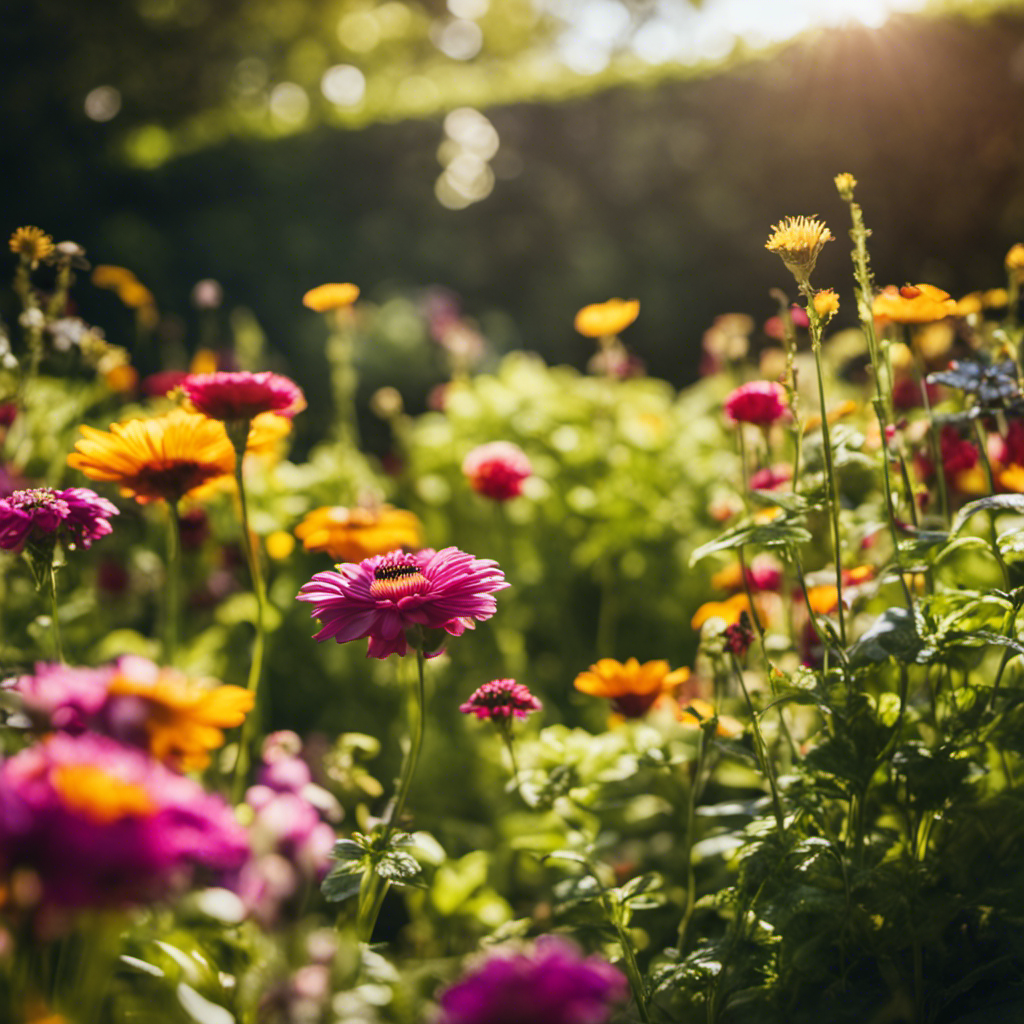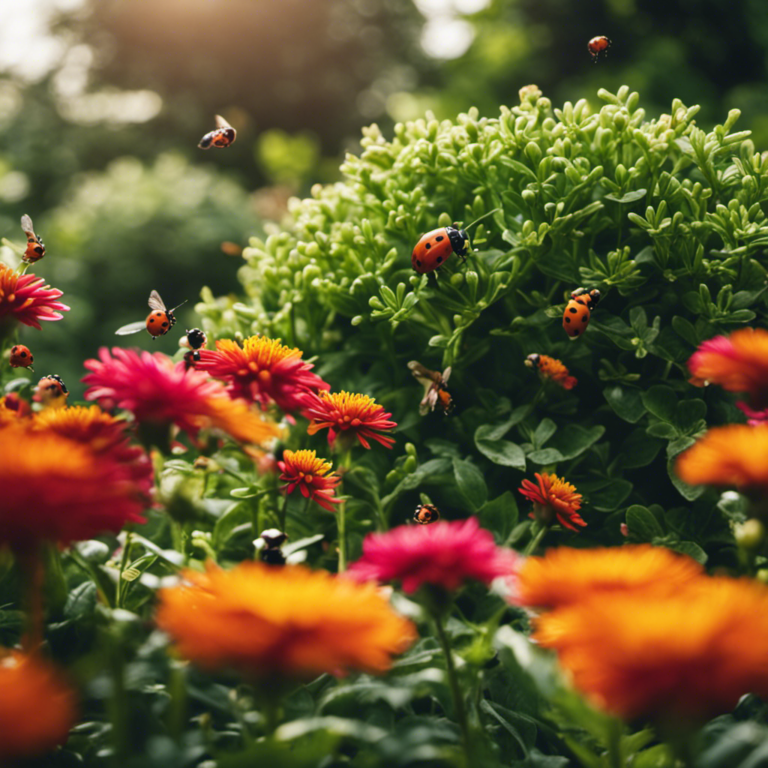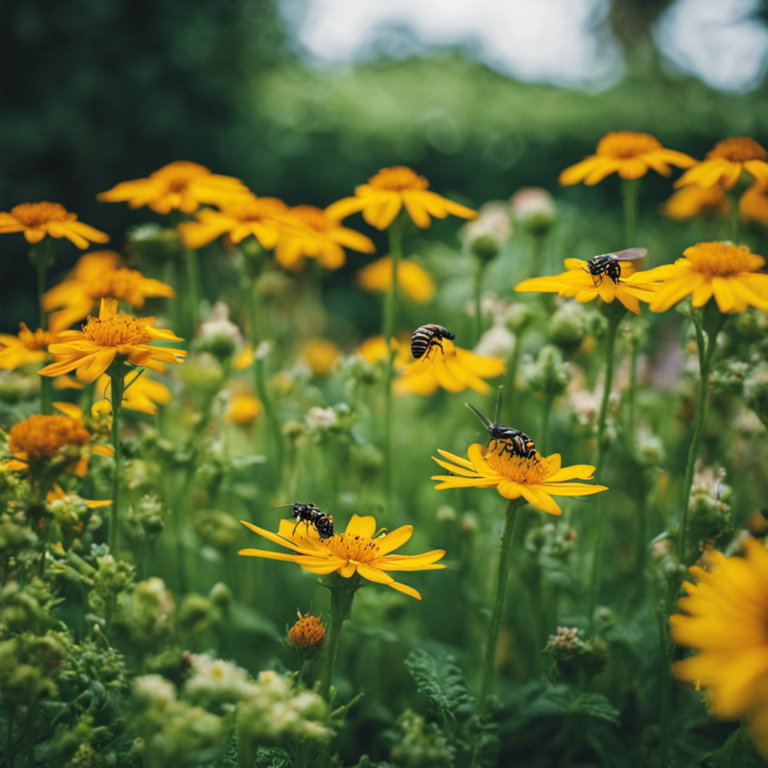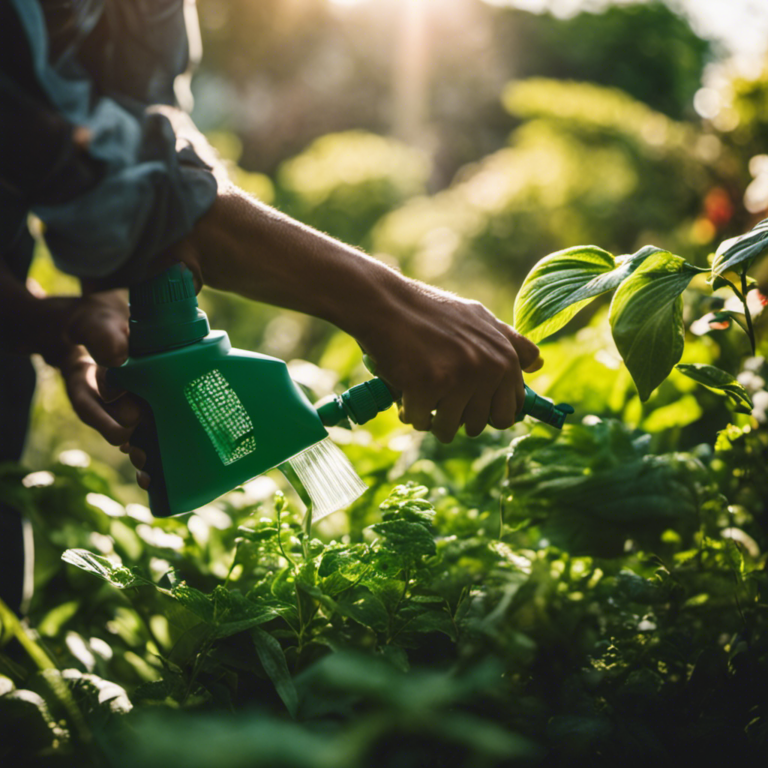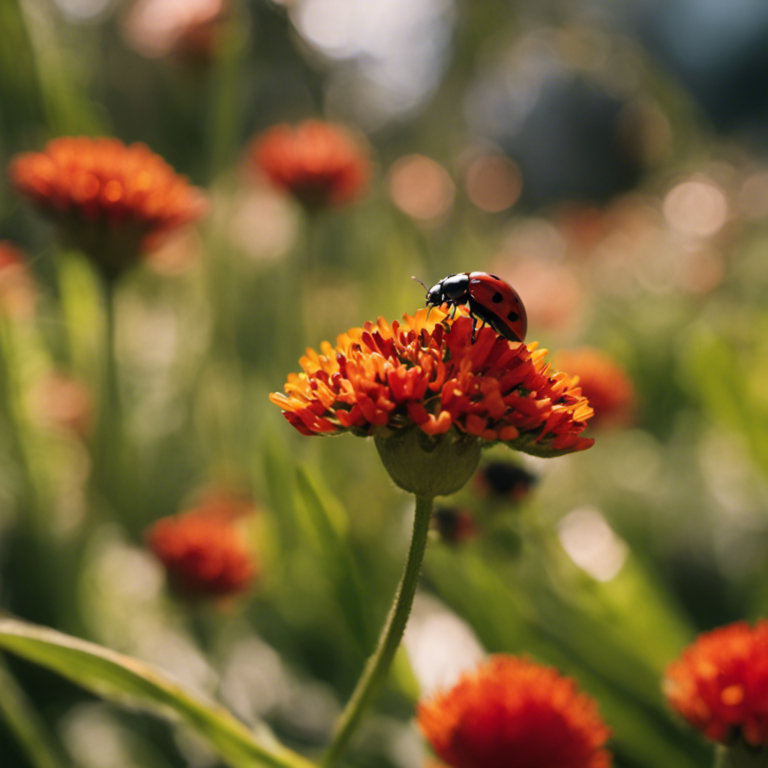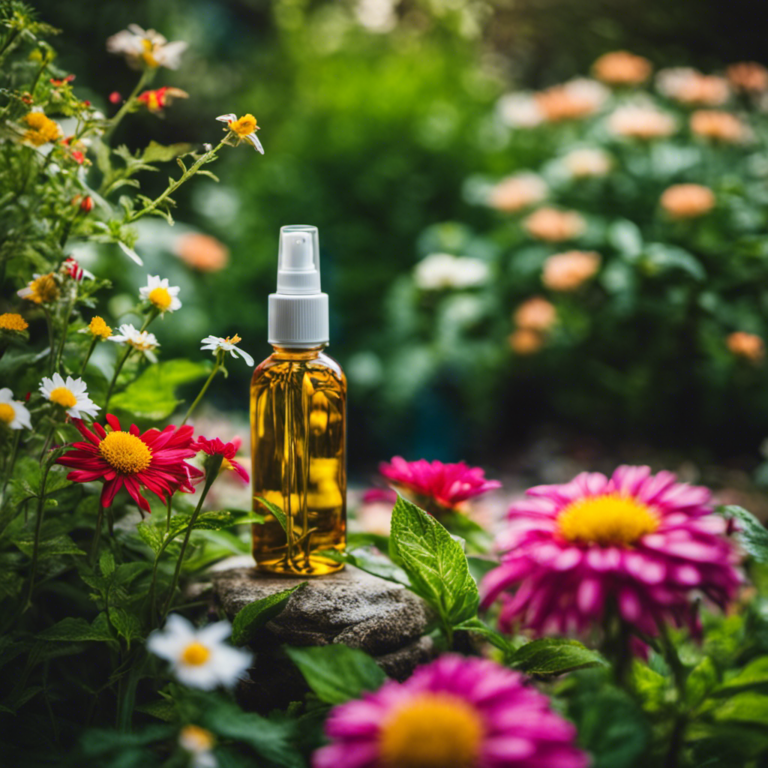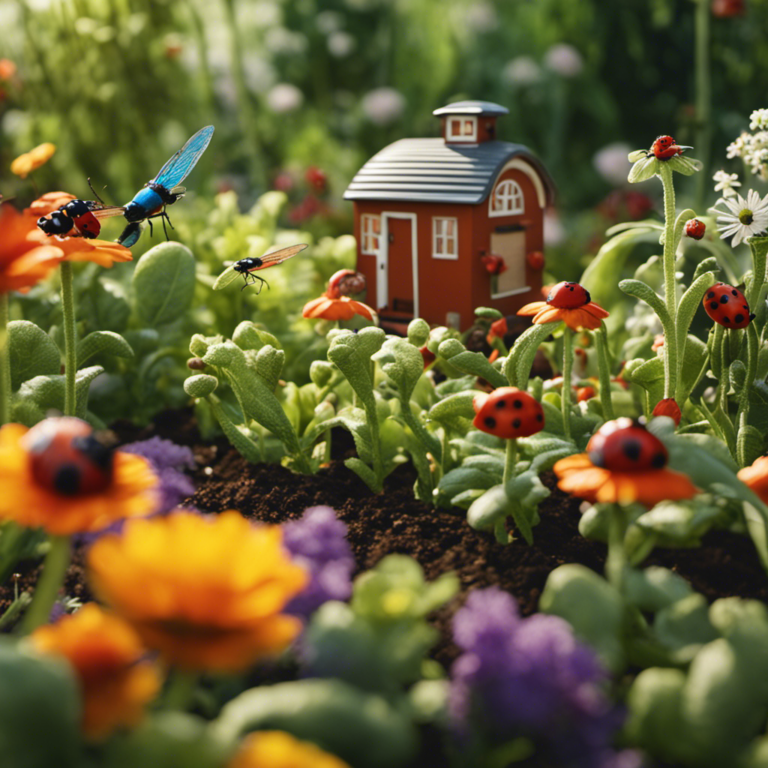Are annoying pests causing trouble in your garden? Don’t worry! In ‘Your Guide to Safe Earth-Friendly Pest Repellents,’ we have effective and environmentally-friendly solutions for you.
From natural repellents to beneficial insects, homemade sprays to companion planting, and essential oils for organic pest control, this guide covers it all.
You can say goodbye to harmful chemicals and welcome a vibrant, pest-free garden. Get ready to roll up your sleeves and create a haven for your plants with these eco-friendly remedies.
Key Takeaways
Your Guide to Safe and Eco-Friendly Pest Repellents
By using natural repellents, beneficial insects, homemade sprays, companion planting, and essential oils, you can adopt a safe and environmentally friendly approach to controlling pests in your garden. These methods not only protect your plants from bothersome pests but also contribute to a healthier ecosystem.
Why wait? Start implementing these strategies today and witness the thriving and flourishing of your garden, without the use of harmful chemicals. Your plants will appreciate your efforts, and the planet will thank you.
"Incorporating natural pest control methods not only keeps your garden healthy but also supports a sustainable environment."
Natural Repellents for Common Garden Pests
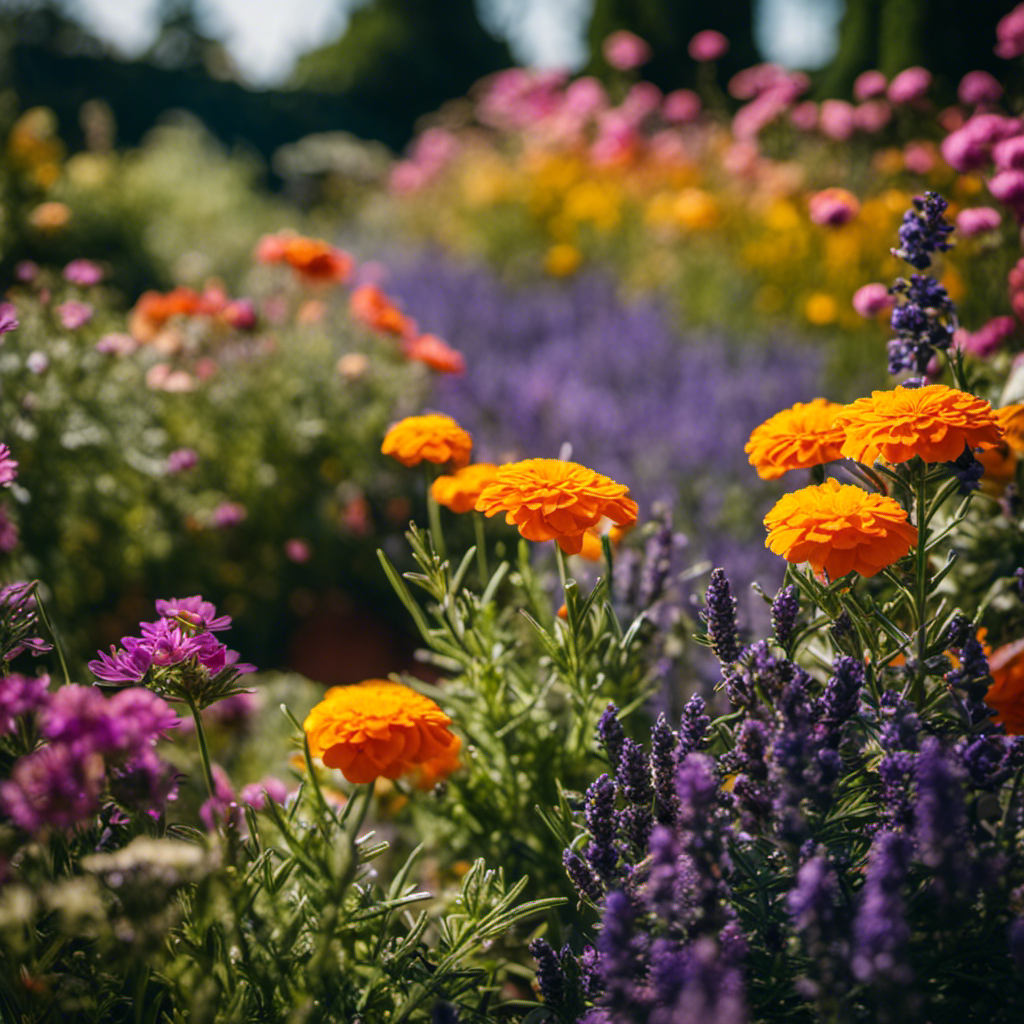
Protect your garden from common pests using natural repellents.
When it comes to organic pest control methods, attracting wildlife can be your best strategy. Certain animals, like ladybugs and birds, are natural predators of garden pests such as aphids and caterpillars. By creating a welcoming environment for these beneficial creatures, you can naturally reduce pest populations.
Planting native flowers and shrubs will attract pollinators and other helpful insects, while adding birdbaths and birdhouses will invite birds to your garden.
Additionally, you can use organic sprays made from ingredients such as neem oil, garlic, or peppermint oil to repel pests without harming the environment. These natural repellents are effective and safe for both your plants and the wildlife that you’re attracting to your garden.
Beneficial Insects as Pest Control
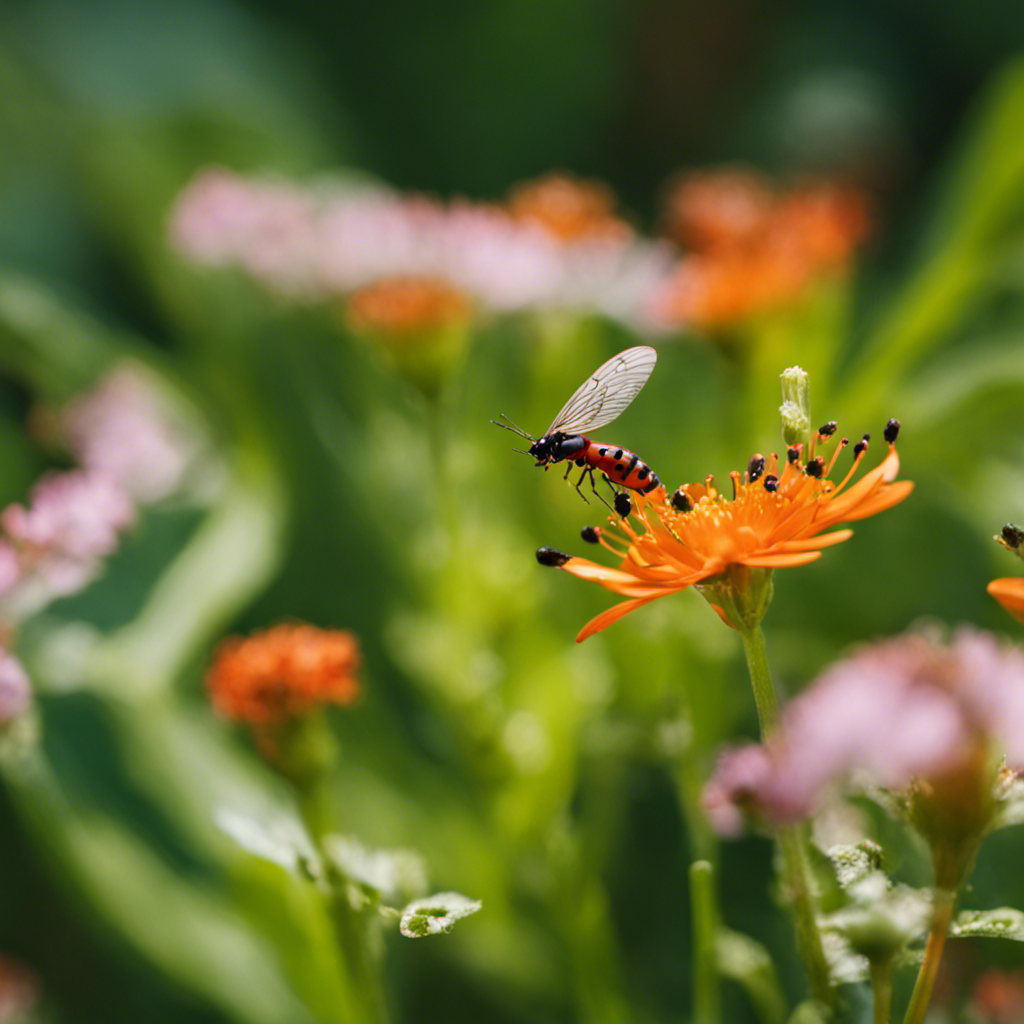
Attracting beneficial insects is an effective and natural way to control pests in your garden. These insects are natural predators that help keep pest populations in check, reducing the need for chemical pesticides and promoting a healthier ecosystem. Ladybugs, lacewings, and praying mantises are examples of beneficial insects that prey on common garden pests like aphids and mites.
To attract these helpful creatures, you can plant flowers that provide nectar and pollen, such as marigolds, sunflowers, and daisies. Creating a diverse plant environment and providing shelter, such as small piles of leaves or rocks, can also make your garden more inviting for beneficial insects.
Homemade Pest Repellent Sprays
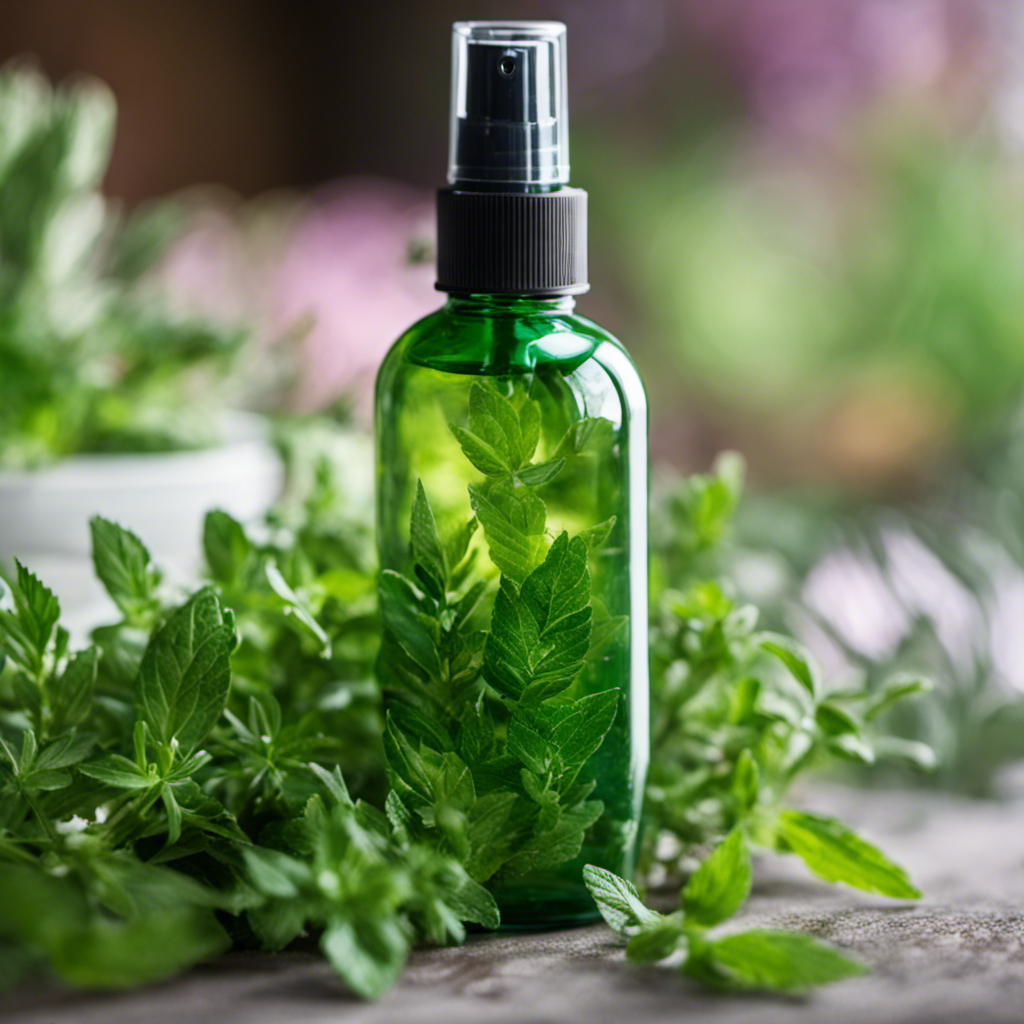
Creating homemade pest repellent sprays is a safe and eco-friendly way to keep pests away without resorting to harmful chemicals. Here are some simple recipes you can try:
-
Lemon and Eucalyptus Spray: In a spray bottle, mix equal parts lemon juice and eucalyptus oil. This combination acts as a natural deterrent for mosquitoes and flies.
-
Peppermint and Vinegar Spray: Combine one cup of vinegar with ten drops of peppermint essential oil. This mixture effectively repels ants, spiders, and other common household pests.
-
Garlic and Chili Spray: Blend a few cloves of garlic and a chili pepper with water. Strain the mixture and pour it into a spray bottle. This potent spray is effective against aphids, caterpillars, and beetles in your garden.
-
Neem Oil Spray: Dilute neem oil with water following the instructions on the bottle. Neem oil is a natural pesticide that repels a wide range of insects, including mosquitoes, fleas, and ticks.
Companion Planting for Pest Management
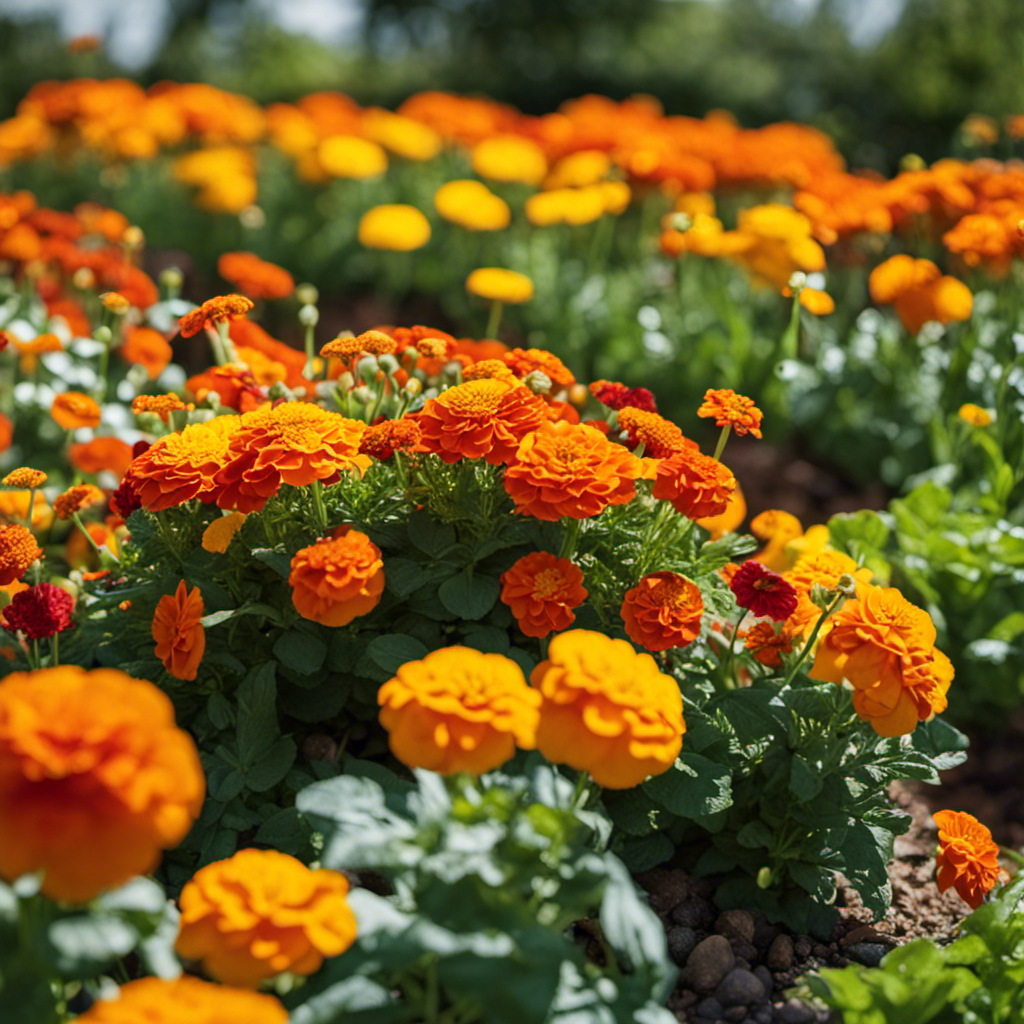
Companion Planting for Natural Pest Management
One effective way to manage pests in your garden is through companion planting. By strategically planting certain crops together, you can naturally deter pests and protect your plants.
Companion planting works by utilizing the natural properties of specific plants to repel pests or attract beneficial insects that prey on pests. For instance, planting marigolds alongside your vegetables can help repel nematodes, while placing garlic near roses can deter aphids.
Another method to consider is crop rotation. By changing the location of your crops each season, you can disrupt pest life cycles and decrease the buildup of pests in the soil.
Additionally, you can use physical barriers like fences, row covers, and netting to keep pests out of your garden. These methods of companion planting and pest exclusion can assist you in maintaining a healthy, pest-free garden.
Essential Oils for Organic Pest Control
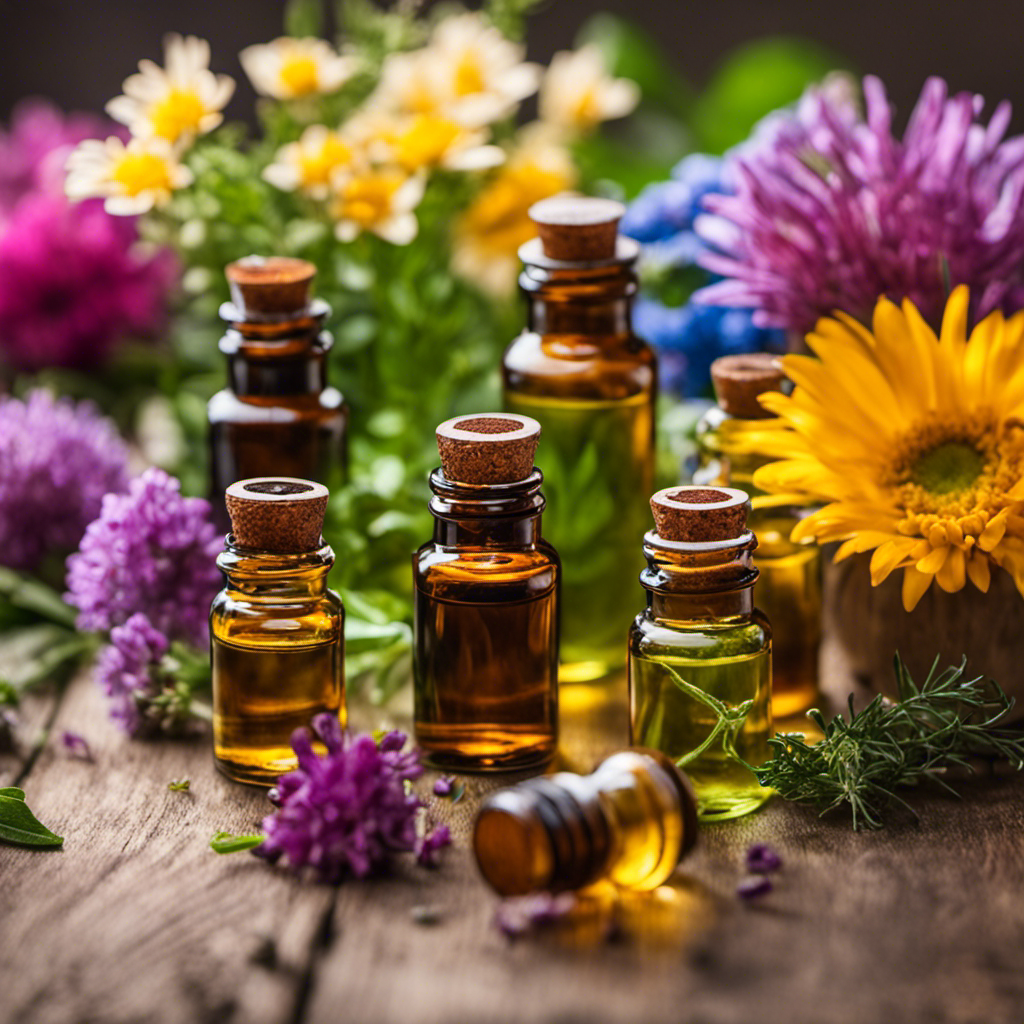
Try using essential oils for organic pest control in your garden. They’re natural, safe, and effective alternatives to chemical pesticides.
Here are some essential oils you can use:
- Peppermint oil: It repels ants, spiders, and mice.
- Lemon eucalyptus oil: It repels mosquitoes and flies.
- Rosemary oil: It repels mosquitoes and cabbage worms.
- Lavender oil: It repels fleas, moths, and mosquitoes.
To make your own DIY pest repellents, simply mix a few drops of the essential oil with water in a spray bottle. Shake well and spray it around your garden or on the affected plants. Remember to reapply after rain or every few days for best results.
These organic pest control methods aren’t only effective but also safe for the environment, your plants, and your family.
Conclusion
By incorporating natural repellents, beneficial insects, homemade sprays, companion planting, and essential oils, you can create a safe and environmentally friendly approach to pest control in your garden.
These methods not only safeguard your plants from bothersome pests but also contribute to a healthier ecosystem.
So why wait? Start implementing these strategies today and witness the thriving and flourishing of your garden, free from the use of harmful chemicals.
Your plants will appreciate your efforts, and so will the planet.
